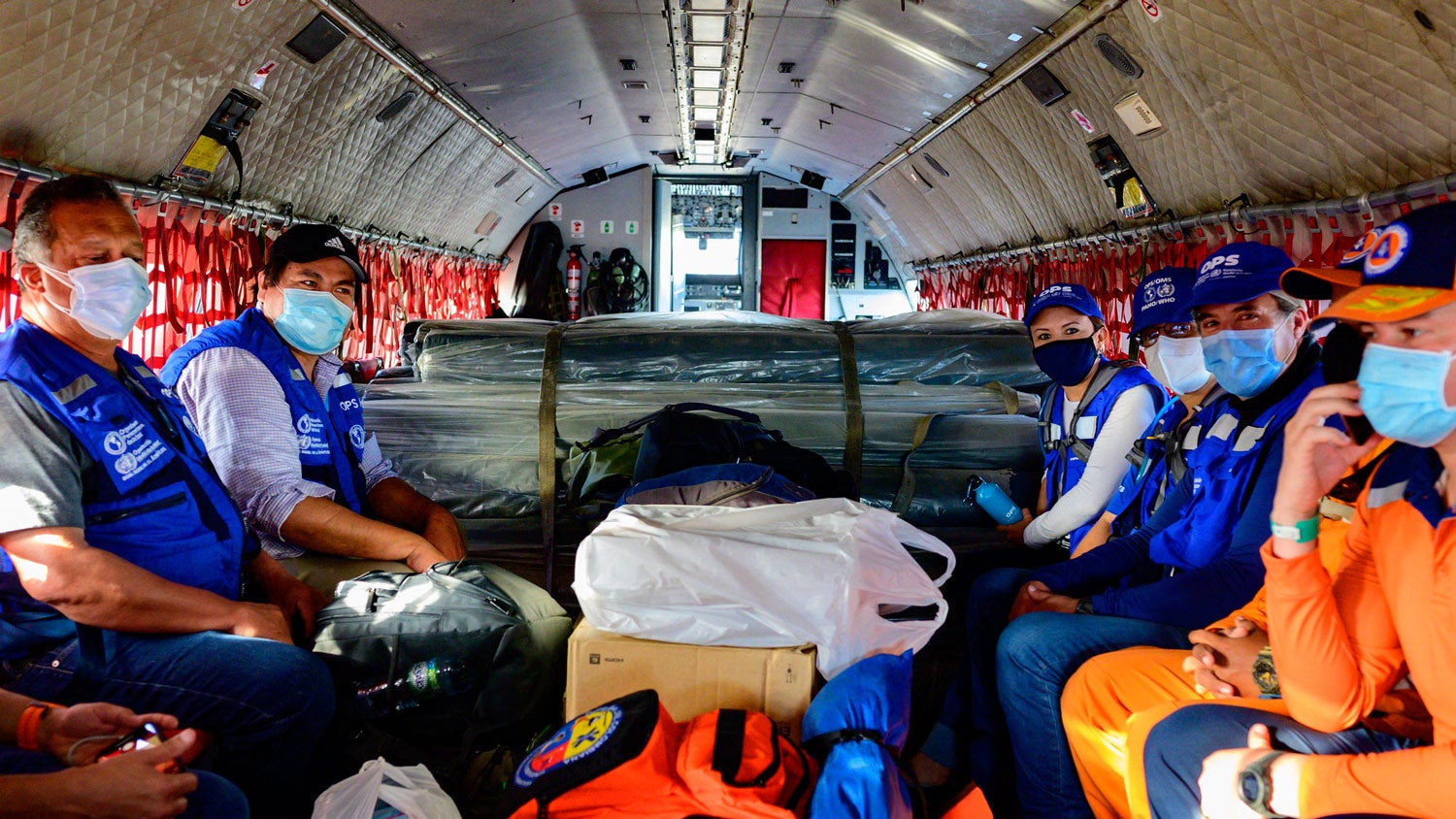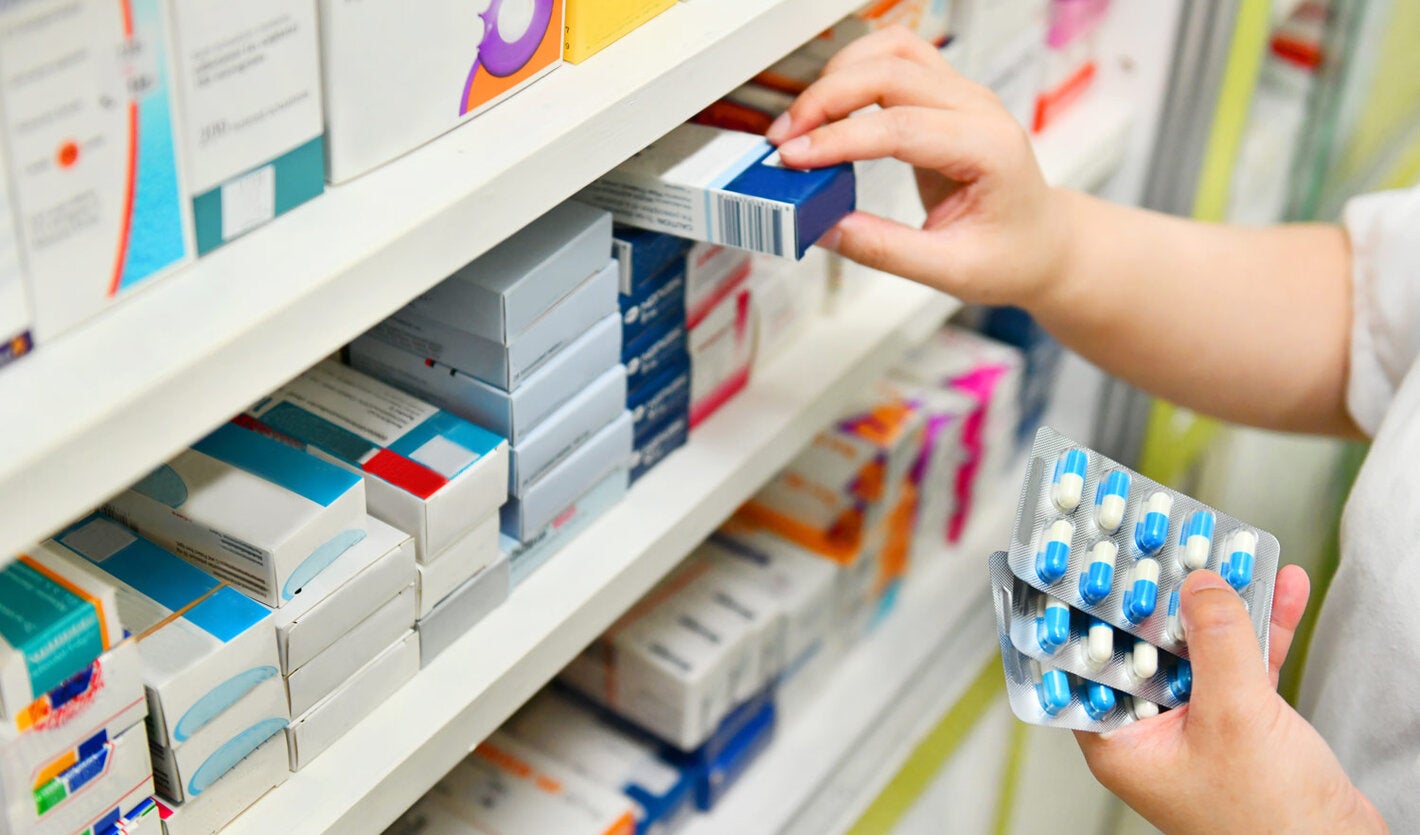As 2021 gets underway, the Americas faces daunting health challenges. The region begins the historic task of vaccinating some 465 million people against COVID-19 while continuing the testing and treatment essential to fighting the pandemic on all fronts.
In 2021, PAHO will work side by side with ministries of health to tackle not only COVID-19 but also universal health, health inequities, drug resistance, noncommunicable diseases, and other obstacles to health and well-being. PAHO will emphasize the need for countries to work together, involve entire governments not just health sectors, and make sure that no one is left behind by any health initiative. PAHO will support countries in building strong health systems and healthy populations, despite the unprecedented crisis of our second pandemic year.
Here are 10 ways that PAHO will do this.
Build solidarity for health security
In 2021, PAHO will work with countries to improve health emergencies preparedness, in part by ensuring that nations work together. PAHO will support enhancing capacity to respond to health emergencies in the most vulnerable rural and urban communities, small island nations and territories, and stressed or conflictive environments.
PAHO will continue its work in partnerships to build a health emergencies workforce to expand, train and standardize high-quality public health and health care. Finally, PAHO will build on work with national authorities and key partners to protect populations from infodemics and make sure they get accurate, evidence-based information.
Speed up access to COVID-19 tests, medicines and vaccines
A top priority in 2021 will be to continue work across the four pillars of the ACT-Accelerator to achieve equitable access to safe, effective COVID-19 vaccines, tests, and treatments. Ensuring that health systems are strong enough to deliver vaccines is also vital.
PAHO will continue providing technical cooperation to member countries to strengthen national immunization programs as a public health priority. PAHO will also help countries prepare for the introduction and deployment of COVID19 vaccines.
That work will be based on the values framework and roadmap, established by the WHO Strategic Advisory Group of Experts on Vaccines (SAGE) and endorsed by PAHO’s Technical Advisory Group (TAG) on Vaccine-preventable Diseases.
Likewise, this work will be based on PAHO’s COVID-19 Vaccines Task Force and WHO guidance on developing a national deployment and vaccination plan for COVID-19 vaccines.
Advance health for all
In 2021, PAHO will work with partners to help countries strengthen health systems so they can respond to COVID-19, ensure delivery of essential health services, and support vaccine deployment. Three important initiatives will underpin this work:
- implementing and rolling out the Renewed Essential Public Health Functions in the Americas to strengthen public health action, address health system weaknesses, and eliminate barriers to health;
- increasing capacities for production of essential medicines and health technologies, in particular for health emergencies;
- building resilience in health systems to support the achievement of Universal Health in the Americas, despite continuous and emerging health threats.
To advance this work, PAHO will take part in the Year of the Health and Care Workers 2021, supporting the global campaign to strengthen the health and social care workforce.
Revitalize efforts to tackle communicable diseases
The COVID-19 pandemic has set back advances toward ending polio, HIV, tuberculosis, and malaria and toward averting epidemics of diseases like measles and malaria. In 2021, PAHO will help countries get vaccines to people who missed them during the pandemic.
PAHO will work to increase coverage by the HPV vaccine and by screening and treatment services. That work will be undertaken as part of the new global effort to eliminate cervical cancer, which was launched in 2020.
Finally, PAHO will work with partners to implement the new 10-year Road Map for Neglected Tropical Diseases and intensify efforts to end AIDS, tuberculosis, and malaria while eliminating viral hepatitis by 2030.
Combat drug resistance
Regional efforts to end infectious diseases will only succeed if medicines to treat them are effective. In 2021, it will be vital to build on work with One Health partners – the UN Food and Agricultural Organization and World Organisation for Animal Health (OIE) – and with stakeholders across all sectors to preserve antimicrobials.
At the same time, PAHO will continue support of national action plans, making sure that antimicrobial resistance is factored into health system strengthening and health emergencies preparedness plans.
Prevent and treat noncommunicable diseases (NCDs) and mental health conditions
The past year has demonstrated that people with NCDs are particularly vulnerable to COVID-19 and that disruptions in services negatively impact quality care for them. It is vital to ensure equitable access to screening, diagnosis, and treatment for diseases such as cancer, diabetes, hypertension, and heart disease, especially within the context of primary care. In 2021, improving health services and the quality of clinical management for people with NCDs will be a major priority for PAHO.
Protecting populations from exposure to unhealthy commodities associated with NCDs, such as tobacco, alcohol and ultra-processed food and drinks, have become even more vital. Another priority will be strengthening public policies for prevention of NCDs – including participation in the global campaign to help 100 million people quit tobacco – and tackling malnutrition in all forms.
Last year also demonstrated the devastating impact on mental health of the pandemic and lockdowns, economic insecurity, social isolation, and fear and distress. In 2021, PAHO will continue to support efforts to expand services for community-based mental health care and for people living in vulnerable situations.
Tackling health inequities
This year, PAHO will work with countries to strengthen efforts to address health equity and tackle the structural and social determinants of health, meaning the underlying conditions and mechanisms that lead to health inequities.
PAHO will help with implementation of equitable, participatory and inclusive health policies and will support the work of the health sector with other sectors such as labor, social protection and education, since health inequities are affected by policies and actions of those other ministries.
These policies will address health inequities related to gender, ethnicity, disability, occupation and employment, migration status, and living in remote rural regions or disadvantaged urban areas. PAHO will also work with countries to strengthen collection and analysis of data and monitor health inequities.
Other 2021 priorities will include:
- ensuring equitable, gender- and culturally sensitive COVID-19 responses, especially access to vaccines, within a human rights framework;
- generating conditions that allow for a post-COVID-19 recovery – build back better – with a special focus on the most affected populations in situations of vulnerability.
Finally, as part of a year-long campaign, WHO will call for global action to address health inequities on the April 7 World Health Day, and PAHO will work with member nations to emphasize this focus.
Provide regional leadership on science, data science and digital transformation
This year, PAHO will continue to monitor and evaluate the latest scientific developments and critical data around COVID-19 and other health issues. PAHO will strengthen the excellence, relevance, and efficacy of its core technical functions to provide the best information and evidence-based recommendations for public health on issues ranging from Alzheimer’s to Zika.
In alignment with WHO’s Digital Health Strategy and the UN Secretary General’s Roadmap for Digital Cooperation, PAHO will lead the process in the Region to accelerate the digital transformation of the health sector and strengthen Information Systems for Health (IS4H) and Data Science as key elements to improve the response to COVID19 and the post COVID19 recovery stage.
Act in solidarity
Throughout the fight against COVID-19, PAHO has emphasized the need to demonstrate greater solidarity between nations, institutions, communities and individuals. In 2021, PAHO will prioritize solidarity, building national capacity through our work with member nations but also through initiatives with youth groups, civil society, and the private sector. Our institutional capacity will develop apace, including through new scientific collaborations.
If you are member of the news media and need help developing articles about these and other health topics in the Americas, please contact mediateam@paho.org.









